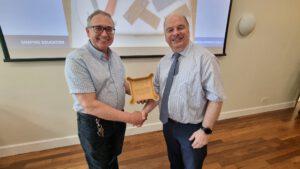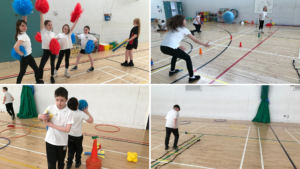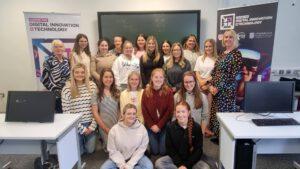 On Tuesday 26 May 2025, final year student teachers from Stranmillis University College became the first cohort to take part in a newly launched Digital Skills Academy course, delivered through the Centre for Digital Innovation and Technology (CDIT).
On Tuesday 26 May 2025, final year student teachers from Stranmillis University College became the first cohort to take part in a newly launched Digital Skills Academy course, delivered through the Centre for Digital Innovation and Technology (CDIT).
This initiative marks a significant step in a collaborative effort between further and higher education providers and industry partners across Northern Ireland to enhance digital skills training.
Developed in partnership with Belfast Metropolitan College as part of the Belfast Digital Skills and Employability Programme—funded by Bank of America—the academy focuses on equipping future educators with the digital competencies necessary for modern classrooms.
The programme also aligns with the NI Executive’s educational reform strategy, ‘A Fair Start’, which emphasises the importance of training teachers in digital skills to combat educational underachievement.
Leading the programme for Stranmillis, Head of STEM, Dr Irene Bell said “Stranmillis University College is delighted to be delivering the first course for ITE students of the CDIT Digital Skills Academy. Through this advanced, accredited course, the newly qualified teachers will be ideally positioned to develop the digital skills of the next generation.”
Among the inaugural participants were Amy Elliott, a final year student in Post-Primary Religious Studies, and Rachel Dunbar, studying Primary Education. In explaining why the signed up to programme, both highlighted the importance of developing digital proficiency to meet the demands of contemporary teaching.
Diane Atchison, CDIT Project Manager at Belfast Met, added: “I’m proud to collaborate with Stranmillis University College on launching this new CDIT Digital Skills Academy. It’s an important step in empowering future teachers to lead with confidence in the digital age.”
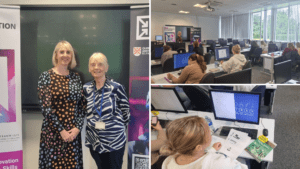

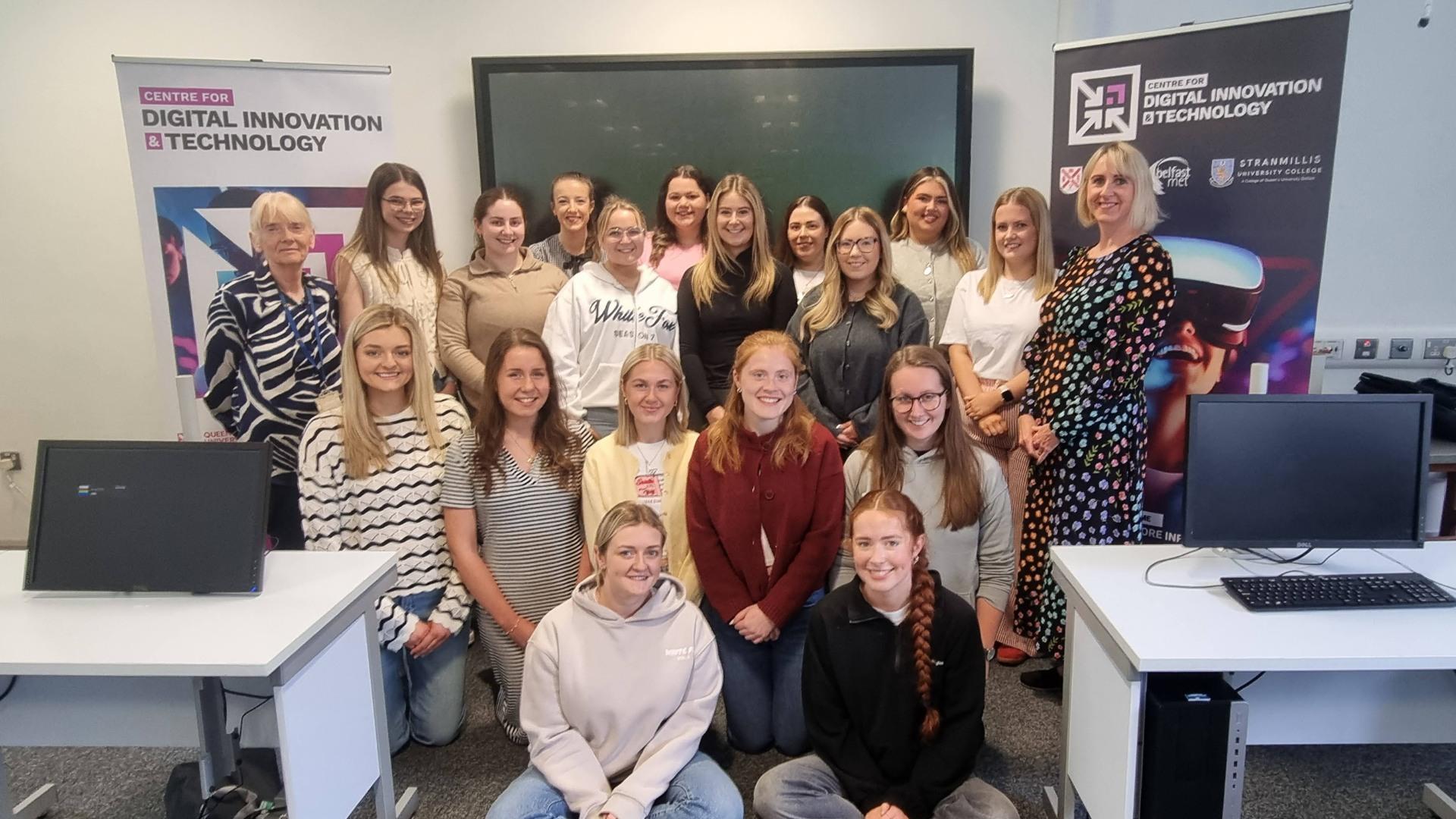
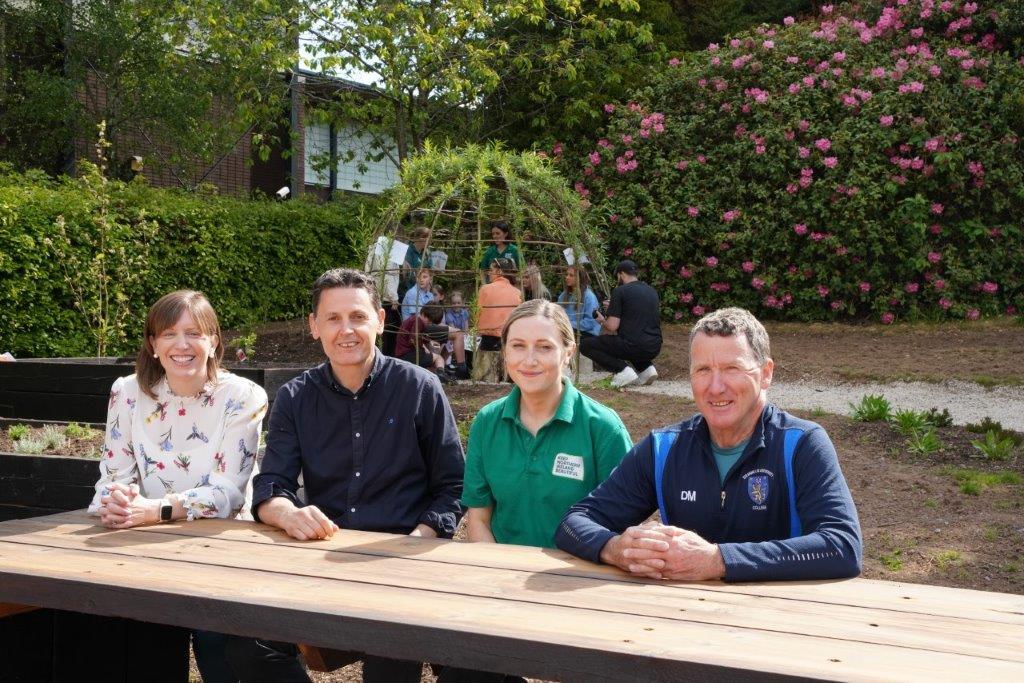
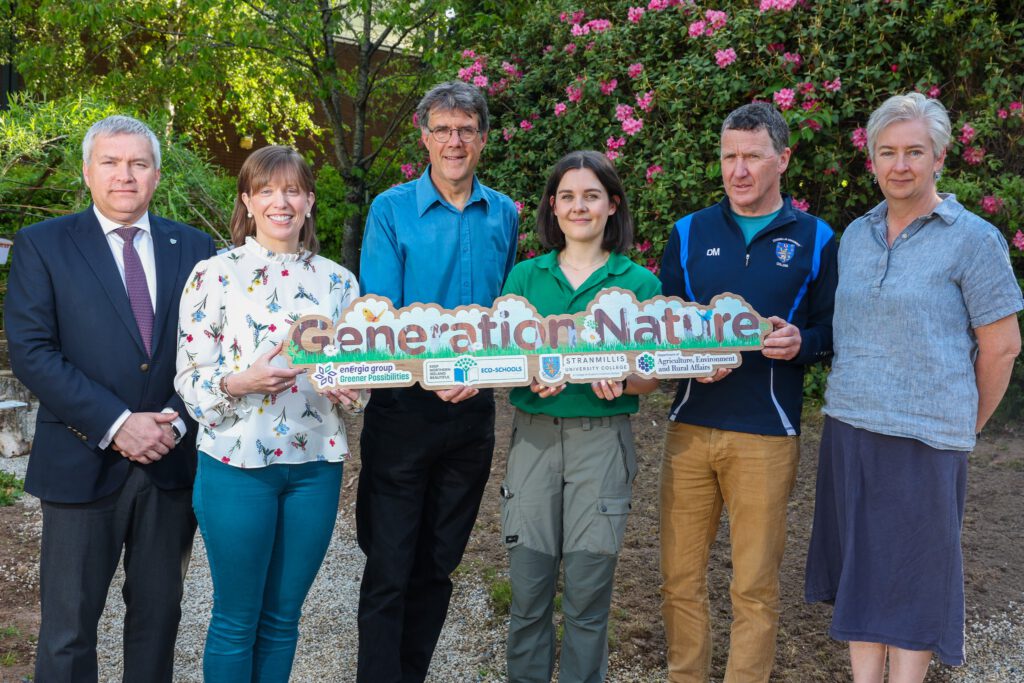 The College, in partnership with Keep Northern Ireland Beautiful, and supported Energia’s Greener Possibilities fund and the Department of Agriculture, Environment and Rural Affairs (DAERA) has launched a pioneering new outdoor learning and environmental education facility designed to prepare future teachers to lead the way in sustainability and climate education.
The College, in partnership with Keep Northern Ireland Beautiful, and supported Energia’s Greener Possibilities fund and the Department of Agriculture, Environment and Rural Affairs (DAERA) has launched a pioneering new outdoor learning and environmental education facility designed to prepare future teachers to lead the way in sustainability and climate education.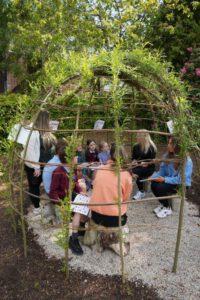 The initiative is designed to boost teacher confidence in delivering climate and environmental education, a goal rooted in global research: a UNESCO study found that while 95% of teachers see climate education as important, less than 30% feel ready to teach it.
The initiative is designed to boost teacher confidence in delivering climate and environmental education, a goal rooted in global research: a UNESCO study found that while 95% of teachers see climate education as important, less than 30% feel ready to teach it.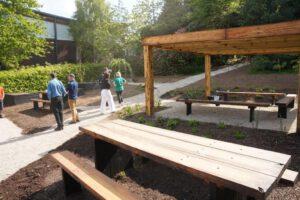 As environmental challenges intensify globally, initiatives like Generation Nature offer a hopeful blueprint—empowering the next generation of educators to lead meaningful change from their own classrooms.
As environmental challenges intensify globally, initiatives like Generation Nature offer a hopeful blueprint—empowering the next generation of educators to lead meaningful change from their own classrooms.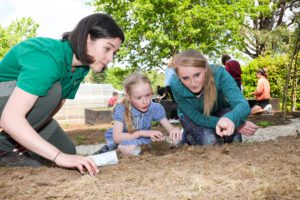
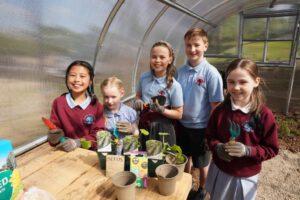
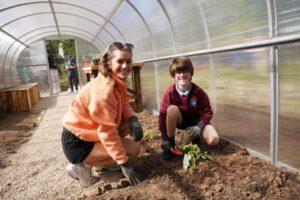
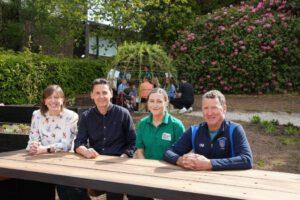
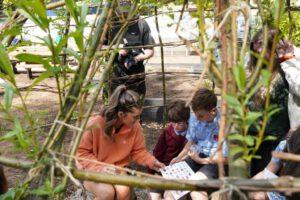
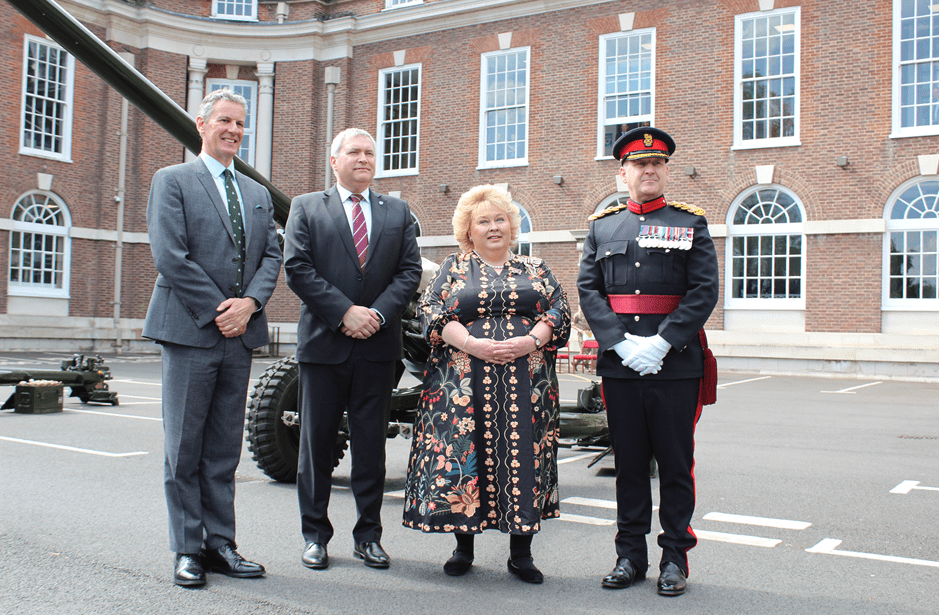
 The 80th Anniversary of Victory in Europe (VE) Day has been commemorated by a special event held ion the Stranmillis campus. Organised by the Lord Lieutenant of Belfast and the Reserve Forces’ and Cadets’ Association for Northern Ireland (RFCA NI), supported by 38 (Irish) Brigade, the event included the firing of a Royal Gun Salute to mark the second anniversary of the Coronation of Their Majesties King Charles III and Queen Camilla. Traditionally held in Hillsborough Castle. This is the first time that a Royal Gun Salute has been held in Belfast since 1999, and a huge honour for the College
The 80th Anniversary of Victory in Europe (VE) Day has been commemorated by a special event held ion the Stranmillis campus. Organised by the Lord Lieutenant of Belfast and the Reserve Forces’ and Cadets’ Association for Northern Ireland (RFCA NI), supported by 38 (Irish) Brigade, the event included the firing of a Royal Gun Salute to mark the second anniversary of the Coronation of Their Majesties King Charles III and Queen Camilla. Traditionally held in Hillsborough Castle. This is the first time that a Royal Gun Salute has been held in Belfast since 1999, and a huge honour for the College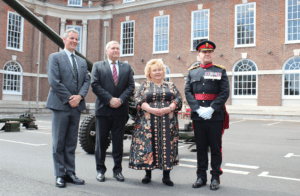 Thanking the participants and guests, The Lord Lieutenant of Belfast, Dame Fionnuala Jay-O’Boyle DBE DStJ DDL said, “Today’s event is a sensitive balance of reflection and celebration. It commemorates enormous sacrifice and acknowledges the steadfast resilience of those who lived through World War II. Indeed, it is a fitting tribute that we hold this event in Belfast which suffered so much especially during the Blitz. And even more significant is the choice of Stranmillis University College as host venue which was repurposed as a military hospital from 1939-1944.”
Thanking the participants and guests, The Lord Lieutenant of Belfast, Dame Fionnuala Jay-O’Boyle DBE DStJ DDL said, “Today’s event is a sensitive balance of reflection and celebration. It commemorates enormous sacrifice and acknowledges the steadfast resilience of those who lived through World War II. Indeed, it is a fitting tribute that we hold this event in Belfast which suffered so much especially during the Blitz. And even more significant is the choice of Stranmillis University College as host venue which was repurposed as a military hospital from 1939-1944.”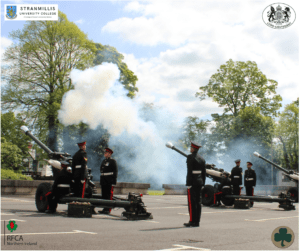


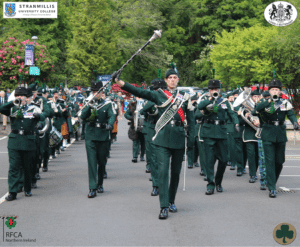
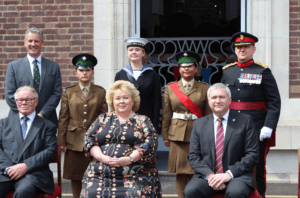

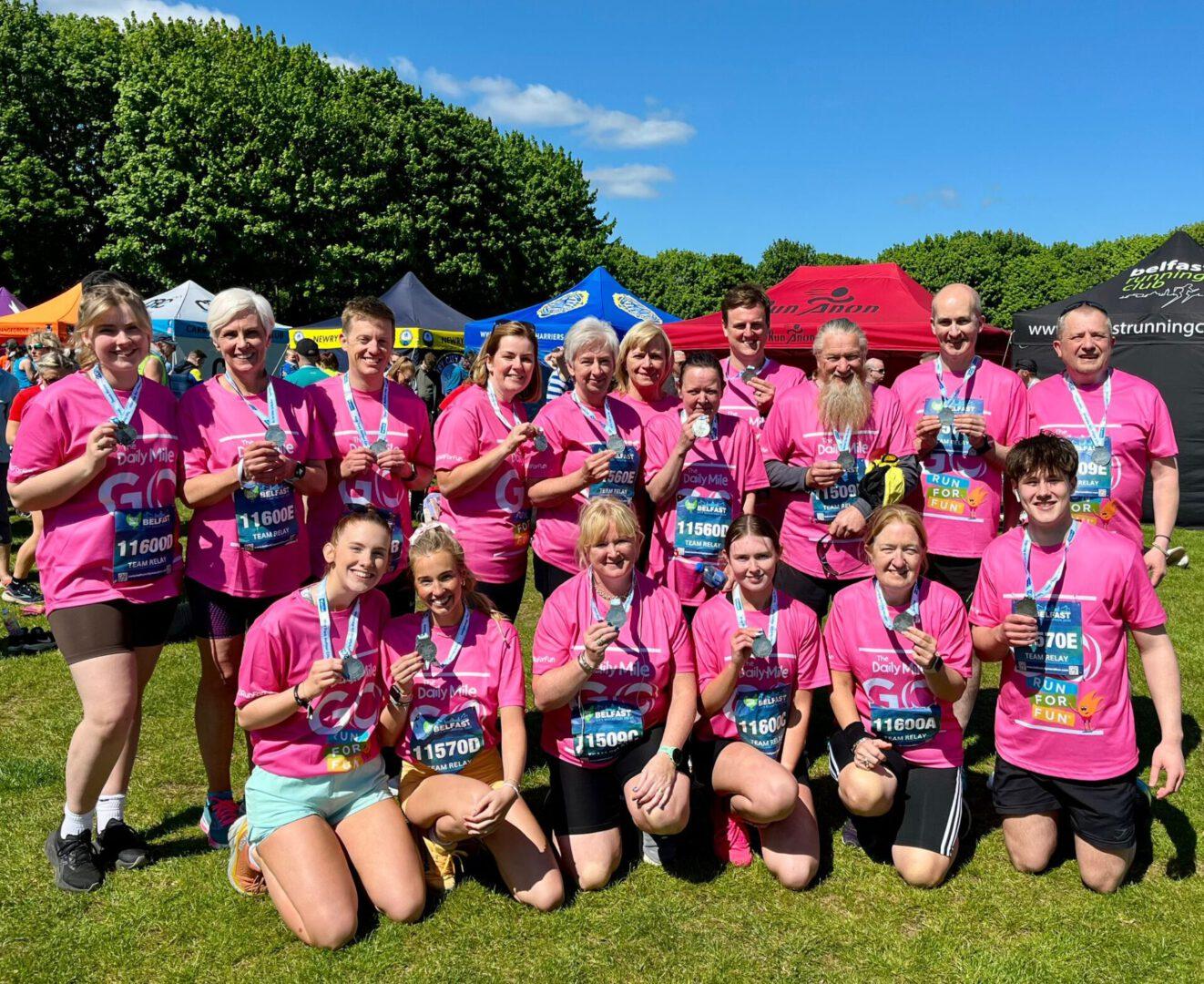
 Congratulations to all our students, staff and friends of the
Congratulations to all our students, staff and friends of the 
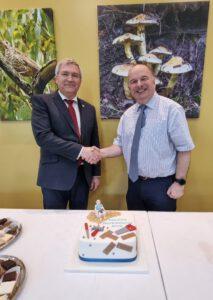 Wednesday 30 April marked the end of an era as colleagues and students came together to wish Professor Ken Gibson a very happy retirement after 35 years of unwavering and dedicated service to the College. Ken is also a former Stran student, so when you add his student days here that’s almost 40 years!
Wednesday 30 April marked the end of an era as colleagues and students came together to wish Professor Ken Gibson a very happy retirement after 35 years of unwavering and dedicated service to the College. Ken is also a former Stran student, so when you add his student days here that’s almost 40 years! (
(